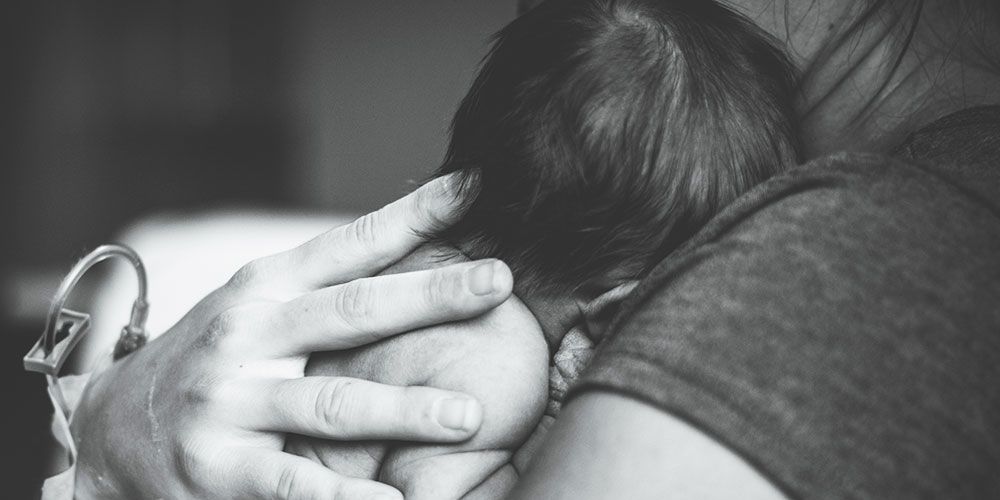
Postpartum depression (PPD) is a type of depression that happens after someone gives birth. Postpartum depression doesn’t just affect the birthing person. It can affect surrogates and adoptive parents, too. People experience hormonal, physical, emotional, financial and social changes after having a baby. These changes can cause symptoms of postpartum depression.
Postpartum depression is believed to be caused by a combination of hormonal changes, genetic predisposition, and psychological factors. Women who have a history of depression, anxiety, or other mood disorders are at a higher risk.
Treatment for postpartum depression often involves a combination of therapy and medication. Therapy, such as cognitive-behavioural therapy (CBT), can help women manage their symptoms and develop coping strategies. In some cases, antidepressant medications may be prescribed to help regulate mood.
It’s essential for women experiencing symptoms of postpartum depression to seek help from a healthcare provider. Early intervention and support are crucial for recovery. Family and friends can also provide valuable support by offering practical help and emotional encouragement.
How do I know if I have postpartum depression?
Some normal changes after pregnancy can cause symptoms similar to those of depression. Many mothers feel overwhelmed when a new baby comes home. But if you have any of the following symptoms of depression for more than 2 weeks, call your doctor, nurse, or midwife:
- Feeling angry or moody
- Feeling sad or hopeless
- Feeling guilty, shameful, or worthless
- Eating more or less than usual
- Sleeping more or less than usual
- Unusual crying or sadness
- Loss of interest, joy, or pleasure in thing you used to enjoy
- Withdrawing from friends and family
- Possible thoughts of harming the baby or yourself
Some women don’t tell anyone about their symptoms. New mothers may feel embarrassed, ashamed, or guilty about feeling depressed when they are supposed to be happy. They may also worry they will be seen as bad mothers. Any woman can become depressed during pregnancy or after having a baby. It doesn’t mean you are a bad mom. You don’t have to suffer. There is help. Your doctor can help you figure out whether your symptoms are caused by depression or something else.
What can I do at home to feel better while seeing a doctor for postpartum depression?
Here are some ways to begin feeling better or getting more rest, in addition to talking to a health care professional:
- Rest as much as you can. Sleep when the baby is sleeping.
- Don’t try to do too much or to do everything by yourself. Ask your partner, family, and friends for help.
- Make time to go out, visit friends, or spend time alone with your partner.
- Talk about your feelings with your partner, supportive family members, and friends.
- Talk with other mothers so that you can learn from their experiences.
- Join a support group. Ask your doctor or nurse about groups in your area.
Don’t make any major life changes right after giving birth. More major life changes in addition to a new baby can cause unneeded stress. Sometimes big changes can’t be avoided. When that happens, try to arrange support and help in your new situation ahead of time.
It can also help to have a partner, a friend, or another caregiver who can help take care of the baby while you are depressed. If you are feeling depressed during pregnancy or after having a baby, don’t suffer alone. Tell a loved one and call your doctor right away.
What can happen if postpartum depression is not treated?
Untreated postpartum depression can affect your ability to parent. You may:
- Not have enough energy
- Have trouble focusing on the baby’s needs and your own needs
- Feel moody
- Not be able to care for your baby
- Have a higher risk of attempting suicide
- Feeling bad about yourself can make depression worse. It is important to reach out for help if you feel depressed.
Researchers believe postpartum depression in a mother can affect the healthy development of her child which can cause:
- Delays in language development and problems learning
- Problems with mother-child bonding
- Behavior problems
- More crying or agitation
- Shorter height8 and higher risk of obesity in pre-schoolers
- Problems dealing with stress and adjusting to school and other social situations
People with depression may not recognize or admit that they’re depressed. They may not be aware of signs and symptoms of depression. If you suspect that a friend or loved one has postpartum depression or is developing postpartum psychosis, help them seek medical attention immediately.